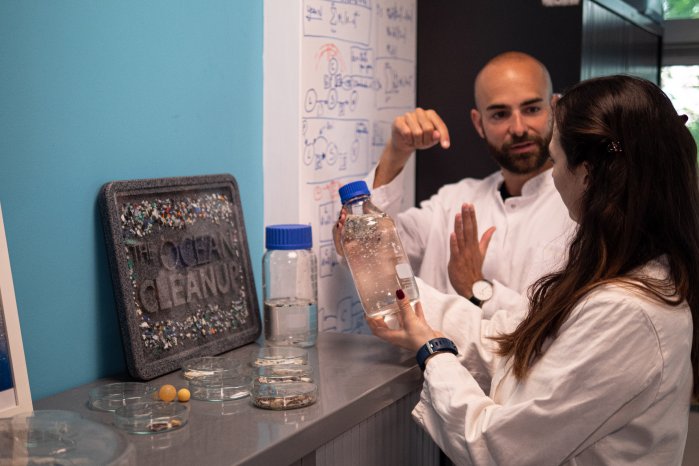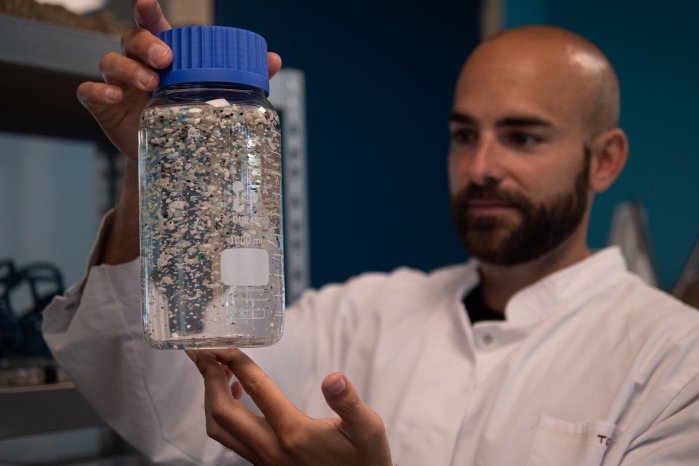In a research laboratory, marine samples are examined for the presence and types of microplastic contamination. The research helps to understand the dynamics of microplastic pollution formation and dispersal in the oceans. The researchers use DURAN® laboratory glass bottles in their work.
Other institutes around the world have also chosen DURAN® laboratory glass bottles for their research into microplastic pollution. The diverse list include, the Alfred Wegener Institute, Bremerhaven, Rostock University, the Greenpeace laboratories at the University of Exeter in England, The Norwegian Institute for Water Research (NIVA), the University of Putra Malaysia and the Alzahra University in Iran.
DURAN® laboratory glass bottles are made of high-purity borosilicate glass 3.3. DURAN® glass is highly transparent, has an excellent chemical resistance, a high service temperature, minimal thermal expansion and, as a result, high thermal shock resistance. It is virtually inert with a minimal interact with other substances. These properties enable reliable and reproducable results.
"We are proud that world renowned companies, research institutes and environmental organisations, such as The Ocean Cleanup, use our DURAN® bottles. We hope that our laboratory containers will contribute to supporting the work of the scientists in the best possible way," commented Alistair Rees, Senior Product Manager at DWK Life Sciences.


